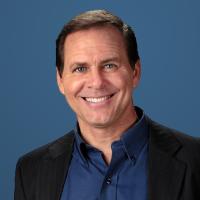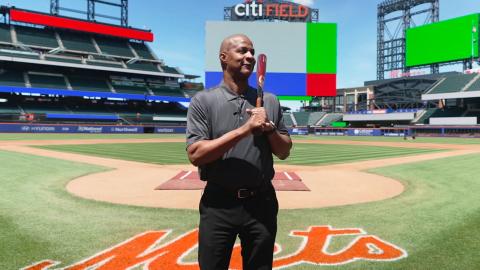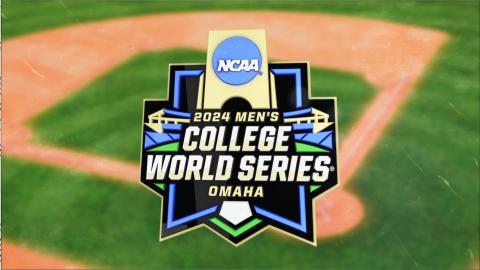Trust is the Name of the Game for Coach
Bryce Drew holds court on a campus of distinction, saying, “We’re the world’s largest Christian University. That doesn’t happen without God’s hand and blessing.” Previously leading two different schools to the NCAA tournament, Bryce made it three as Grand Canyon University’s Head Basketball Coach, declaring, “we wanna be an extension of the school, implement faith into our players, play hard and hopefully win a lot of games.” The 2-time conference champions have – for he is the same Bryce Drew that once hit that iconic game-winning shot, catapulting Valparaiso to a 1998 tournament upset, while his dad and brother watched as coaches. After 6 seasons as an NBA player and 11 as a college coach, Bryce merges the core of each together.
Question: “Are you by nature a builder?”
Bryce Drew: “I was really competitive as an athlete and so my nature is just do it harder, do it more. Early in my coaching days I kind of just had that approach about everyone on the team. And now as I’ve gotten to coach a lot of different personalities, I think some people really respond to that and then others probably need a lot more encouragement. And now you have to answer ‘why?’ You know, ‘why, am I doing this coach?' And that’s just become part of our coaching so they know what’s expected, sooner than later.”
Question: “Bryce, your heart to coach day in and day out, what is the one thing that you keep going back to?”
Bryce Drew: “Growing up a coach's kid and loving the game, I was always in the gym. Definitely the blueprint that my dad laid out years ago, the big job of a coach is the influence we’re gonna have on basketball players. Some people can go out and speak why we live the way we do and others – it’s an example from a faith perspective, it’s from a character perspective that they’ll look back, you know, 20, 30 years and be like, ‘man, that really changed my life.’”
Question: “Most common pressing need, those incoming freshman have …?”
Bryce Drew: “Most of the young men on our team, they want to able to trust us as coaches and trust us as men. And that doesn’t happen overnight, it's something that you know we have to earn on a year-to-year basis. You can build trust for a lifetime and you can lose it in one moment. So, for us as coaches, is to build that trust, but then even harder, you know, to keep that trust.”
Question: “What is required more from you now as a head coach that you didn’t have to bring 10 years ago?”
Bryce Drew: “You have to have great administration, willing to adapt. And then you know – assistant coaches I think are more valuable now than ever just with building relationships with players. You know with the portal being able to leave right away to different school, it definitely changes a long-term perspective in a program more to a short-term perspective. You’re going to get a lot more players that just come for one year, coming for two years. So, a lot of that process with culture, team building, character building needs to be accelerated, you know, a little bit faster than the past.”
Question: “How do you prevent the message from a Christian University that can become obligated, stale – and instead, fanning that to a group of individuals that are in need of some foundations in their life?”
Bryce Drew: “I’m a work in progress. How we present the gospel is a work in progress. I’ve tried to get better at that. In the Bible, how clever Jesus was, you know, getting His message across and sometimes it was through the parables or time and place is so important.”
Question: “What’s most important about learning how to lose in order to win, is there a relationship there?”
Bryce Drew: “Yeah! As an athlete, as a coach, I’ve always learned way more through losing – unfortunately. Those losses have motivated me! It’s painful and you hate it. But sometimes in my lowest sports moments, unbelievable moments have come from that, you know, after you do experience the setbacks and the growing pains and then the improvement, it makes it that much more meaningful when you do reach your goals.”
Question: “The performance of the demand and the pressure to win?”
Bryce Drew: “You know there’s a lot of things unfortunately that you just can’t control, it's always that balance of, ‘okay God, this is yours!’ You wanna win and you wanna be successful and you want your guys to enjoy their experience there. It’s just what the sports world is and it's something that you have to grow and learn to handle.”
Question: “Does the competitor part of us, conflict or compliment, the Christ within us?”
Bryce Drew: “I need to give my all to what I’m doing. And if it’s to win a game, I give my all to try to win that game. I don’t think you can be two different people. All of a sudden you’re following Christ outside the lines and you’re not following Christ inside the lines. Christ was very ambitious in getting His gospel out but He never overstepped what God wants Him to do today! I want to win knowing I’m staying true to the Lord and true to how I’ve professed to live my life.”
Question: “Do you have a tendency to apply the competitor in you in your devotion in following Him?”
Bryce Drew: “As we all know life is hard, there’s so many challenges and things thrown at you. Just like a game at times, all the shots are going in and then all of a sudden they don’t go in and the other team makes it and you got to rear-up those competitive juices again and I’d say very similar to the Christian faith. It’s easier to be a non-follower of Christ. It’s much harder to be a follower of Christ. And at that point we leave it in God’s hands and we just go out and perform what He’s blessed us to do.”




